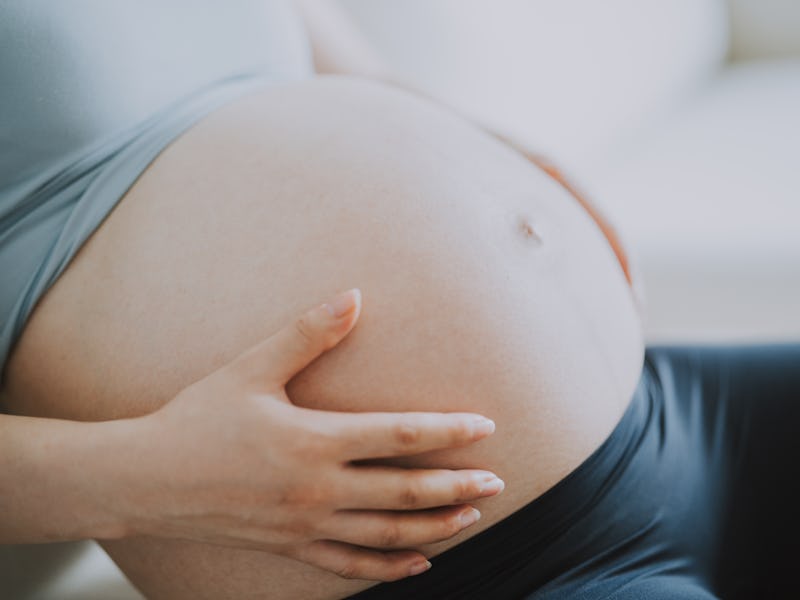A First-Of-Its-Kind Study Reveals What Pregnancy Does to the Brain In Real Time
This is what pregnancy brain actually is.

Pregnancy is transformative in myriad ways. From bones to hormones, few systems remain untouched during and after gestation. And yet, we still understand very little about this process. But new research out today opens a new window into what those nine months do to the brain.
In a paper published today in the journal Nature Neuroscience, researchers from the National Institutes of Mental Health and the University of California at Irvine and Santa Barbara describe the changes observed in a 38-year-old first-time mother’s brain. This paper begins to answer crucial questions surrounding timing behind anatomical changes in the maternal brain.
Over the course of her pregnancy, the team performed 26 MRI scans and took blood samples starting three weeks prior to conception and continued through two years after giving birth. This way, they could track the relationship between changes to the brain as well as changes in hormones circulating in her blood.
Notably, the team observed reductions in the volume of a type of brain tissue called cortical gray matter, which comprises the brain’s wrinkly outer layer. This reduction demonstrates impressive neuroplasticity rather than any damage to the brain. Compared to control subjects, changes in gray matter volume was nearly three times higher in the pregnant woman. On the other hand, an increase in white matter, which is located deeper in the brain, indicates strengthening integrity throughout the brain. The researchers found that white matter levels returned to pre-pregnancy levels by the third trimester.
Previous research, like this 2021 paper published in the journal Brain Sciences on how the brain changes postpartum, aligns with this observation. But now researchers can appreciate just how dynamic pregnancy is for neurological remodeling. This open-access dataset is available online for other researchers to view and analyze in their own work. For example, other experts could use this data to investigate a pregnant person’s risk for postpartum depression, the researchers suggest. It could also be useful for understanding differences in parental behavior, mental health, and brain aging patterns. Most of all, this paper validates that pregnancy brain is indeed very real, and is very healthy.